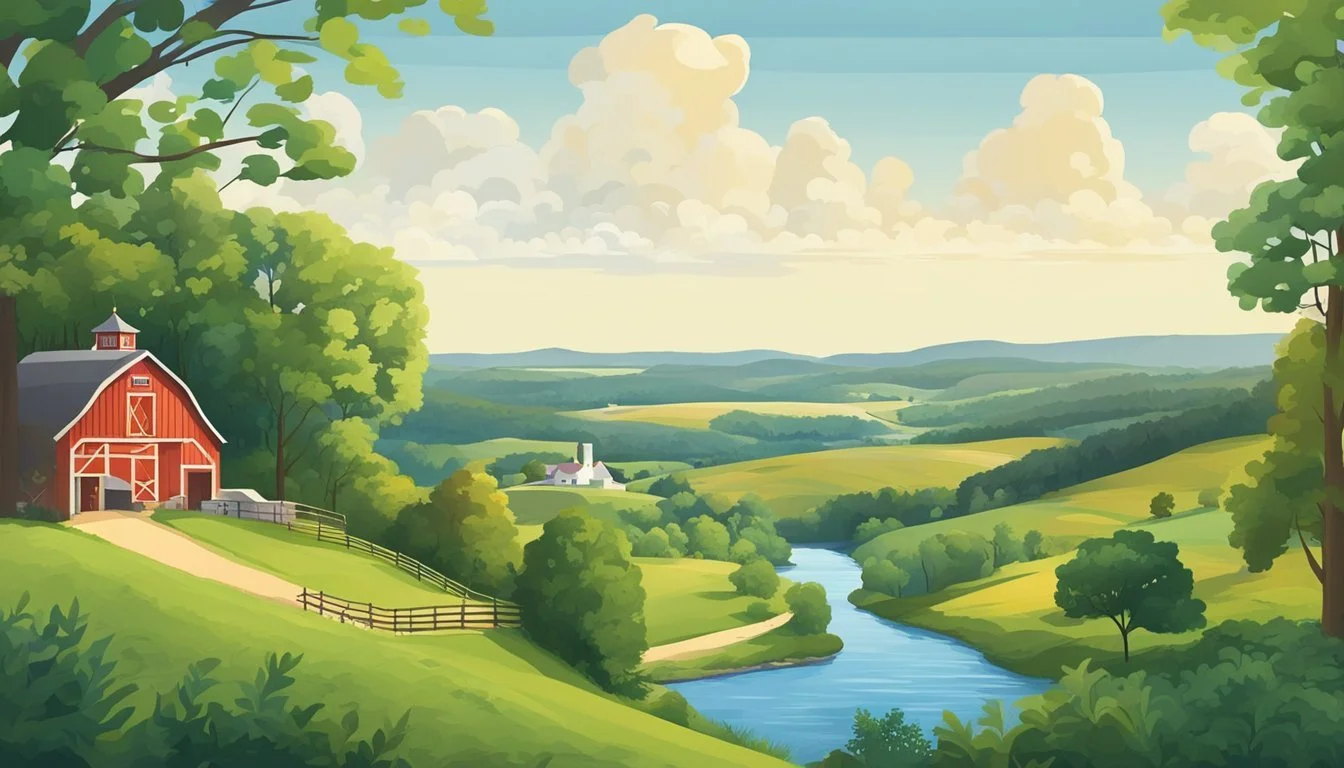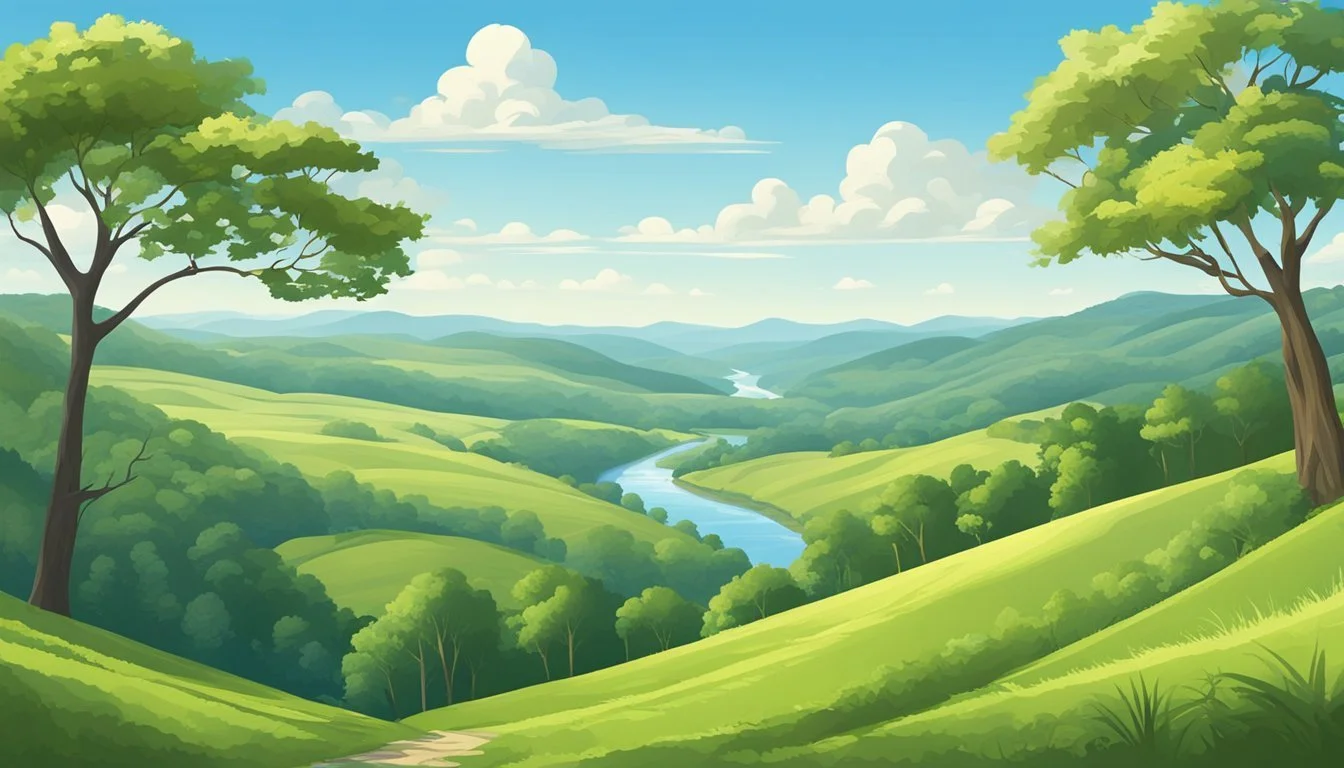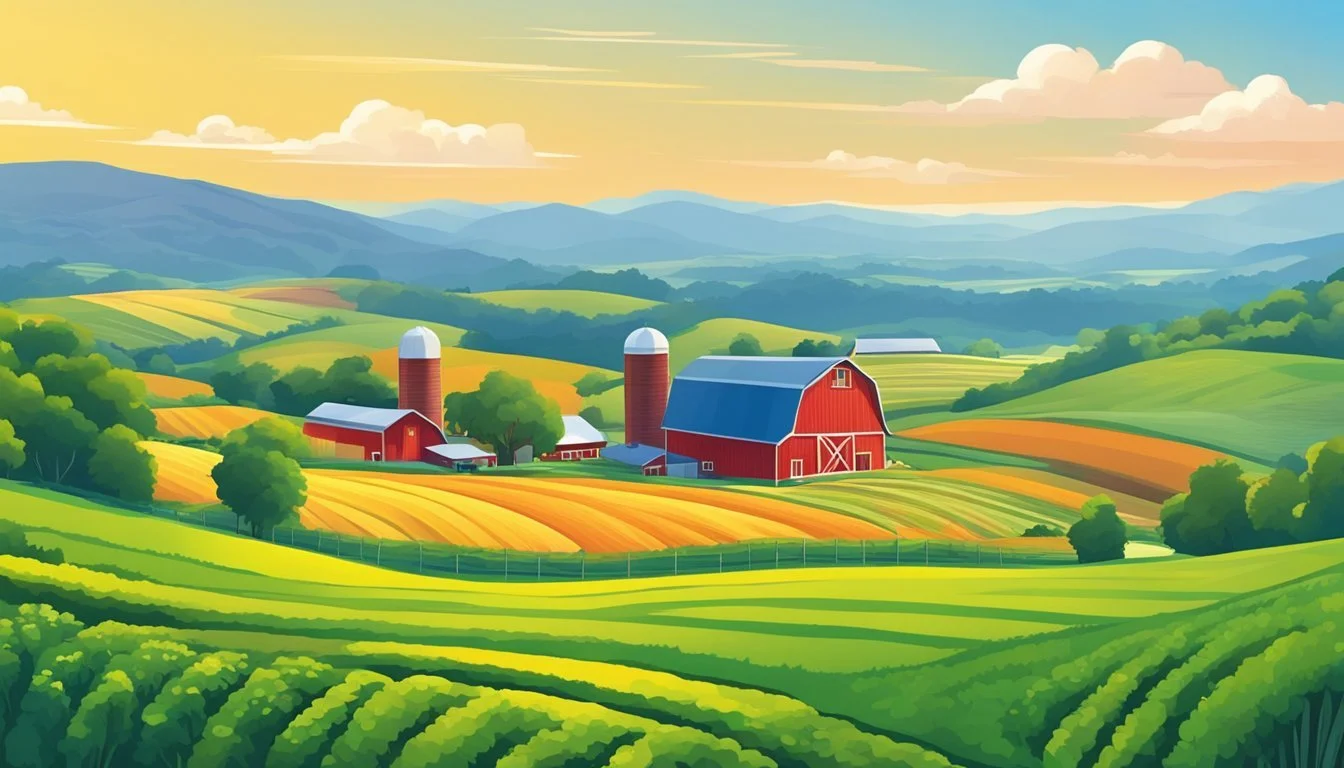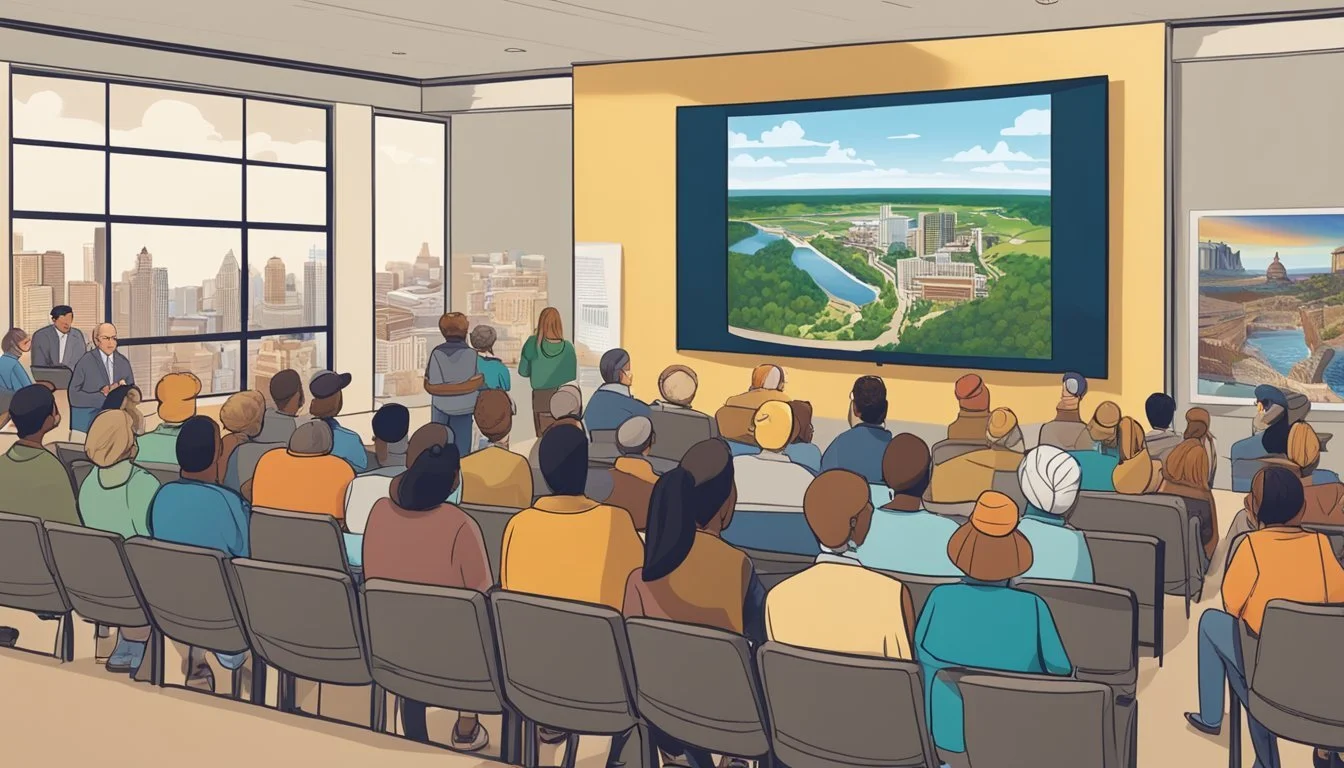8 Engaging Documentaries About Wisconsin
Exploring the Heartland's Hidden Gems
Wisconsin's rich history and diverse landscapes have captured the imagination of filmmakers for decades. From bustling urban centers to serene natural wonders, the Badger State offers a wealth of captivating stories waiting to be told through the lens of documentary filmmaking.
These eight engaging documentaries about Wisconsin showcase the state's unique culture, natural beauty, and historical significance. Each film provides viewers with a deeper understanding of Wisconsin's character, exploring topics ranging from local communities and industrial heritage to environmental conservation and artistic endeavors. Through expert interviews, archival footage, and stunning visuals, these documentaries offer an immersive journey into the heart of America's Dairyland.
1) 'Wisconsin Death Trip' by James Marsh
James Marsh's 1999 docudrama 'Wisconsin Death Trip' offers a haunting glimpse into the dark underbelly of late 19th-century Wisconsin. Based on Michael Lesy's 1973 book, the film focuses on a series of macabre events that occurred in Black River Falls between 1890 and 1900.
Marsh employs a unique visual style, blending black-and-white reenactments with contemporary color footage. This stark contrast highlights the eerie nature of the historical incidents portrayed.
The film draws from newspaper reports and photographs by Charles Van Schaick to recreate the unsettling atmosphere of the era. It explores themes of madness, crime, and tragedy that befell the small Wisconsin town.
Ian Holm narrates the documentary, lending a somber tone to the bizarre and often disturbing events. The film's non-linear structure adds to its enigmatic quality, creating a dreamlike experience for viewers.
'Wisconsin Death Trip' stands out for its unconventional approach to documentary filmmaking. It challenges audiences with its unflinching portrayal of a community seemingly gripped by misfortune and despair.
2) 'The Price of Sand' by Jim Tittle
'The Price of Sand' is a documentary film directed by Jim Tittle that explores the frac sand mining boom in Wisconsin, Iowa, and Minnesota. Released in 2013, the film runs for 57 minutes and delves into the impact of this industry on rural communities.
Tittle's interest in the subject was sparked when an oil company secretly purchased land near his mother's house in rural Minnesota. The company's intention was to build a large open pit frac sand mine.
The documentary examines the economic and environmental consequences of frac sand mining in small towns and rural areas. It raises questions about the long-term effects of this industry on local communities.
'The Price of Sand' features interviews with residents affected by the mining operations. It also includes perspectives from industry representatives and local officials.
The film has been screened on PBS and has garnered attention for its exploration of a lesser-known aspect of the fracking industry. It provides viewers with a balanced look at the complex issues surrounding frac sand mining in the Midwest.
3) 'Cheeseheads' by John Mitchell
'Cheeseheads: The Documentary' explores the essence of Wisconsin culture beyond its stereotypical associations. Directed by John Mitchell, the film takes viewers on a journey through the state's unique identity.
Mitchell, a Wisconsin native, returns home after two decades to rediscover his roots. He examines what it truly means to be a Cheesehead, delving into the state's rich history and diverse offerings.
The documentary showcases Wisconsin's contributions beyond beer, cheese, and the Green Bay Packers. It highlights the state's natural beauty, innovative industries, and vibrant communities.
Through interviews with locals and notable figures, Mitchell paints a portrait of Wisconsin's spirit. The film features insights from Denis Gullickson, Laura Kaeppeler, and other prominent Wisconsinites.
'Cheeseheads' serves as a love letter to Wisconsin, celebrating its unique culture and dispelling common misconceptions. It offers a fresh perspective on the state's identity and the pride its residents feel.
The documentary has been screened at various locations across Wisconsin, fostering discussions about state pride and identity. It continues to resonate with audiences, both within and outside the state.
4) 'Decoding the Driftless' by George Howe
'Decoding the Driftless' is a captivating documentary film produced by George Howe. The film explores the unique Driftless Region of North America, an area that spans parts of Wisconsin, Minnesota, Iowa, and Illinois.
This feature-length documentary takes viewers on an adventurous journey through the air, across rugged landscapes, and underwater. It delves into the geological, biological, and archaeological aspects of this fascinating region.
The film aims to unravel the mysteries of the Driftless Area, which was left untouched by glaciers during the last ice age. This resulted in a distinct landscape with steep hills, deep river valleys, and diverse ecosystems.
Howe and his team use cutting-edge technology and scientific methods to explore the region's hidden caves, ancient rock formations, and unique wildlife habitats. The documentary showcases the area's captivating scenic beauty while providing educational insights.
'Decoding the Driftless' serves as both an entertaining adventure and an informative exploration of this exceptional landscape. It offers viewers a deeper understanding of the region's geological history and ecological significance.
5) 'The Blood is at the Doorstep' by Erik Ljung
Erik Ljung's documentary 'The Blood is at the Doorstep' examines the aftermath of a tragic police shooting in Milwaukee. The film focuses on the death of Dontre Hamilton, an unarmed Black man with schizophrenia, who was killed by a police officer in 2014.
Ljung spent three years following the Hamilton family as they turned their grief into activism. The documentary captures their journey seeking justice and pushing for police reform in the wake of Dontre's death.
The film provides an intimate look at the impact of police violence on families and communities. It explores themes of racial injustice, mental health, and grassroots organizing.
'The Blood is at the Doorstep' received critical acclaim for its balanced and empathetic approach to a complex issue. Ljung's background in journalism shines through in the film's thorough investigation of the case.
The documentary premiered at film festivals and aired on PBS, bringing national attention to Dontre Hamilton's story. It serves as a powerful exploration of one family's quest for accountability in the face of tragedy.
6) 'Wisconsin: An American Portrait' by Kathi Hall
'Wisconsin: An American Portrait' is an Emmy award-winning documentary that premiered nationwide on PBS in March 2000. The film offers a comprehensive look at Wisconsin's rich history, diverse landscapes, and unique culture.
Directed by Chip Duncan and narrated by Mason Adams, this documentary delves into the story of Wisconsin and its people. It explores the deep connection residents have with their land and the strong work ethic that has been passed down through generations.
The film showcases Wisconsin's natural beauty, from its lush forests to its scenic lakes and rivers. It also highlights the state's agricultural heritage and the importance of farming to its economy and way of life.
'Wisconsin: An American Portrait' pays tribute to the state's Native American roots and traditions. It examines how these indigenous cultures have shaped Wisconsin's identity and continue to influence its present-day communities.
Through interviews with local residents and historical footage, the documentary captures the essence of Wisconsin's people and their values. It presents a portrait of a state known for its friendliness, resilience, and strong sense of community.
7) 'The Real Dirt on Farmer John' by Taggart Siegel
'The Real Dirt on Farmer John' is a compelling documentary directed by Taggart Siegel. The film chronicles the life of John Peterson, an unconventional Midwestern farmer in Illinois.
Peterson's journey spans five decades, showcasing his transformation and dedication to organic farming. The documentary explores his founding of Angelic Organics, a Community Supported Agriculture (CSA) farm.
The film portrays Peterson as an outcast in his community, facing economic hardships, rumors, and even violence. It captures his resilience and unique approach to agriculture.
Siegel's documentary provides a haunting and humorous look at Peterson's life. It illustrates the challenges of being different in a traditional farming community.
'The Real Dirt on Farmer John' offers insights into sustainable agriculture and the struggles of American farmers. The film's narrative highlights Peterson's impact on organic farming practices.
Through Peterson's story, viewers gain a deeper understanding of the complexities of modern agriculture. The documentary serves as both a personal tale and a broader commentary on farming in America.
8) 'Purple State of Mind' by Craig Detweiler
'Purple State of Mind' is a thought-provoking documentary that explores the intersection of faith and skepticism in America. Directed by Craig Detweiler, the film features conversations between Detweiler and his former college roommate, John Marks.
The documentary delves into their divergent spiritual journeys. Detweiler became a Christian theologian, while Marks transformed from a cradle Presbyterian into a religious skeptic.
Through candid discussions, the film examines the complexities of belief and doubt in modern society. It offers insights into the challenges faced by individuals with differing worldviews.
'Purple State of Mind' received recognition for its balanced approach to addressing faith-based topics. The documentary screened at various venues, sparking conversations about religious diversity and understanding.
Detweiler's background as a filmmaker and theologian at Fuller Seminary lends depth to the project. Marks, with his experience as a writer and producer for 60 Minutes, brings a journalistic perspective to their exchanges.
The film serves as a platform for open dialogue on sensitive subjects, encouraging viewers to reflect on their own beliefs and attitudes towards those with different perspectives.
Cultural Impact of Documentaries
Documentaries about Wisconsin have shaped public perceptions and deepened appreciation for the state's heritage. These films have become important tools for preserving history and fostering cultural understanding.
Influence on Wisconsin's Identity
Wisconsin documentaries have played a crucial role in shaping the state's collective identity. By showcasing unique local traditions, landscapes, and historical events, these films reinforce a sense of shared heritage among residents.
Documentaries highlighting Wisconsin's natural beauty, from the shores of Lake Michigan to the Northwoods, have bolstered state pride and tourism. Films exploring Wisconsin's agricultural roots and industrial history have helped preserve important cultural narratives.
Many documentaries have brought lesser-known aspects of Wisconsin culture into the spotlight. This has led to renewed interest in local customs, foods, and festivals that might otherwise have faded from memory.
Role in Education and Awareness
Wisconsin documentaries serve as valuable educational resources in schools and community organizations. They provide engaging visual lessons on state history, geography, and civics.
These films raise awareness about important issues facing Wisconsin communities. Documentaries on topics like environmental conservation, economic challenges, and social changes have sparked public discussions and informed policy debates.
By featuring diverse voices and perspectives, Wisconsin documentaries promote cultural understanding. They help bridge divides between urban and rural areas, and between different ethnic and socioeconomic groups within the state.
Documentaries have also preserved oral histories and personal stories that bring Wisconsin's past to life for new generations. This living history approach creates emotional connections to the state's heritage.
Themes Explored in Wisconsin Documentaries
Wisconsin documentaries delve into the state's rich history and diverse natural landscapes. These films shed light on important cultural, industrial, and environmental aspects that have shaped the region.
Historical Perspectives
Wisconsin's documentaries often focus on the state's industrial heritage. Films like "Wisconsin Hometown Stories: Beloit" examine the development of cities built on manufacturing and education. These productions highlight the growth of communities around factories and schools, showcasing the pride residents take in their hometowns.
The role of education features prominently in many Wisconsin documentaries. They explore how institutions like Beloit College have influenced local culture and economy over the decades. Labor movements and workers' rights are also common themes, reflecting Wisconsin's significant role in early 20th century progressive reforms.
Environmental Focus
Nature plays a starring role in Wisconsin documentaries. "Wisconsin's Scenic Treasures: Northwoods" captures the breathtaking beauty of the state's northern regions. These films showcase state parks, natural areas, and forests, emphasizing conservation efforts and ecological diversity.
Documentaries often highlight Wisconsin's unique geological features, formed by glacial activity millions of years ago. They explore how these landscapes have shaped human settlement and industry in the region. Water resources, including the Great Lakes and numerous inland waterways, are frequently featured topics due to their ecological and economic importance to the state.









